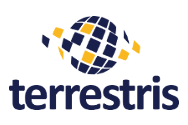Innovation and Efficiency in Focus
mundialis leverages a wide range of cutting-edge AI technologies to make projects more efficient and innovative. Below, we provide an overview of our specific competencies, applications, and experimental approaches in the field of Artificial Intelligence.
Semi-automated Creation and Processing of Training Data
Creating high-quality training data for Machine Learning (ML) and Artificial Intelligence (AI) is often a labor-intensive process. At mundialis, we have developed a methodology specifically for land cover classification that harmonizes data from various sources such as OpenStreetMap, ALKIS, and Open Data from federal states. By using rule-based combinations, we generate training data for a definable number of classes.
AI-based Image Analysis
A key application of AI in the analysis of satellite and aerial images is semantic segmentation, where each pixel of an image is assigned a specific category. mundialis utilizes Convolutional Neural Networks (CNNs) and Vision Transformer models for this purpose. These technologies support not only comprehensive classification but also precise object detection of specific object types.
Use of Large Language Models (LLMs)
At mundialis, we combine Large Language Models (LLMs) with web scraping tools to automatically create and update thematic databases from online resources. LLMs transform user-written natural language queries into instructions for subsequent web scraping tasks, which are then executed. The result is structured, thematic databases.
Another application is the identification and segmentation of objects like buildings, linear features such as roads, and areal features like bodies of water using simple natural language commands. Natural language queries are used to automatically analyze aerial and satellite images. In this way, information can be extracted from the images without requiring specialized knowledge, and the data is stored in a format accessible for further analytical tools. This technique significantly lowers the barrier for extracting information from Earth observation data.
